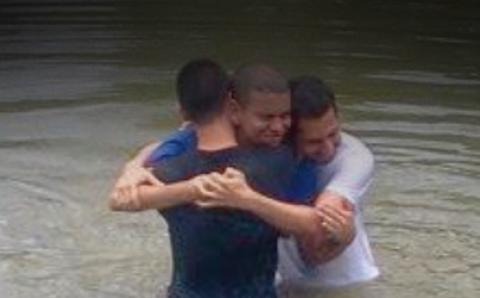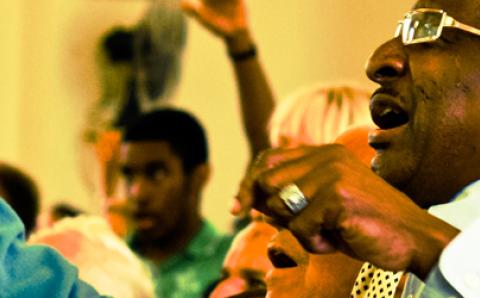Nine of us gathered in the student center of the University of British Columbia’s Okanagan campus on a sunny Saturday morning in late March. We were all sporting similar equipment for the daunting yet exciting journey that lay ahead: backpack, brown-bag lunch, clean socks, sturdy walking shoes, and a memorized psalm tucked safely inside our hearts. We were about to embark on a pilgrimage—a four-hour walk from the center of campus to the top of a nearby mountain.
For the past three weeks we had been preparing for the journey together by studying the psalms of ascent—Psalms 120-134. We learned that this little collection of psalms was recited/sung by ancient Jews as they journeyed to Jerusalem for the three big festivals commanded by God in Exodus 23: Passover (Unleavened Bread), Pentecost (Harvest), and Tabernacles (Ingathering). In addition, each of us drew a psalm of ascent out of a hat that was ours to memorize. Some drew two psalms out of the hat so that all 15 would be covered.
Pilgrimage, we discovered, played a significant role in what it meant to be the people of God. In fact, the more we studied and discussed, the more we became convinced that pilgrimage was one of the key tools that God used to shape his people. These journeys to Jerusalem were regularly occurring rhythms that bonded the people of God together in deep and significant ways.
To get a sense of the formative power of pilgrimage, think of it as an extended church campout three times a year. Many churches hold annual church campouts because of the community building that can happen in such a short amount of time. There is something about roughing it together that deeply bonds people. There is also something formative about walking long distances together toward a common destination.
So, as an attempt to get into the hearts, minds, hands, and feet of those early Jewish pilgrims traveling to Jerusalem, the students and I started walking. With excitement we hiked past horses, llamas, ducks, a lake, a few parks, and countless houses as the university faded behind us. We weaved our way through countryside, suburbs, playgrounds, and mountain trails. Along the way we experienced fatigue, joy, laughter, and surprise.
As we made our way to the top of the mountain—our symbolic Jerusalem—we paused on the side of the road for each student to recite the psalm of ascent he or she had memorized. Students were then given the opportunity to share with the group what the psalm had meant to them and how God had spoken to them through his Word.
When we finally reached the top, everyone was given time to be alone with God. Afterwards we gathered, held hands, and recited together from memory Psalm 134, the final psalm of ascent. Then we descended down the mountain into the valley below.
We plan to make our Psalms of Ascent Pilgrimage an annual event. But even if you can’t walk very far or can’t afford to spend a whole afternoon hiking up a mountain, I encourage you to consider that every Sunday many of us leave our homes and “pilgrimage” by way of car, bike, bus, or foot to a designated house of worship.
This week, try memorizing Psalm 134—and as you travel to your faith community, recite it. As the words pass from your heart into the world, pause for a moment and imagine what it must have been like for those ancient Jews—the people of God—as they journeyed to Jerusalem to worship the living God.
About the Author
Sam Gutierrez is the Associate Director at the Eugene Peterson Center for the Christian Imagination at Western Theological Seminary. More of his creative work can be found at printandpoem.com







